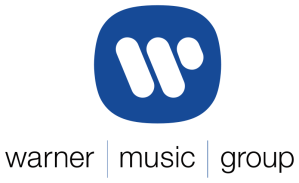
It’s no secret that the music industry is struggling to stay afloat after years of plummeting CD sales, taildragging failures to convert to digital media distribution, pervasive music piracy, and a diverse marketplace where many performers eschew labels for a DIY Internet-based business model. So someone would have to be crazy to invest serious money in a major music label, right? Billionaire Len Blavatnik is hoping that means “crazy like a fox”—his company Access Industries has inked a deal to buy all of Warner Music Group—including all recordings and music publishing—for $3.3 billion in cash.
“We are delighted that Access will be the new steward of this outstanding business,” said WMG chairman and CEO Ed Bronfman Jr., in a statement. They are supportive of the company’s vision, growth strategy and artists, while bringing a fresh entrepreneurial perspective and expertise in technology and media. Most importantly, Access supports Warner Music’s commitment to our recording artists and songwriters who are the foundation of our current and future success.”
The deal calls for WMG shareholders to receive $8.25 in cash for each share of WMG they own, amounting to a 34.4 percent premium over the volume-weighted average share price for WMG over the last six months. Once the deal is completed—expected in the third quarter of 2011, pending regulatory approval—WMG will become a privately-held company, with no stock traded on any exchange. However, it will continue to be called Warner Music Group and operate out of its current facilities.
Warner Music Group is the third largest of the “Big Four” major music labels, Warner, EMI, Sony Music, and Universal Music Group. Some industry watchers expect that Blavatnik’s acquisition of Warner Music Group is just a prelude, however, with EMI the next major label in his sights. Although EMI is the smallest of the Big Four labels, in business terms Warner and EMI could be quite complimentary: where Warner is strong with American acts and new artists, EMI is strong is Europe and has a deep back catalog of highly valued, top-selling artists like the Beatles and Pink Floyd.
EMI is widely expected to be offered for sale by owner Citigroup later this year.
It’s not entirely clear why Blavatnik believes buying Warner Music is a strong business decision, although he is a long-time member of the company’s board. Overall, WMG posted a 6.7 percent decline in revenue for its most recent fiscal year, and its net loss for the year increased to $143 million. Blavatnik’s personal wealth stems mainly from natural resources and oil trading; he also has stakes in other media companies, including the largest Russian television producer, an Israeli television firm, and Los Angeles’ Icon Group, partially owned by controversial star Mel Gibson. Whatever Blatvatnik’s plan might be, however, you can bet it is going to involve digital music distribution.


